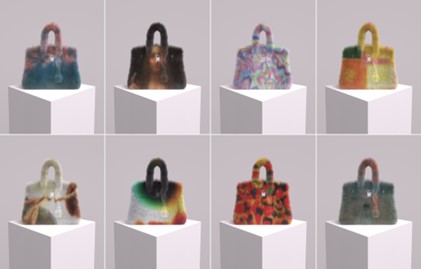Metaverse must respect trademarks
The US court ruled on the trademark infringement in the metaverse. In the widely reported case concerning use by an American artist of NFTs depicting Birkin bag the court decided that the artist infringed the trademark of the French fashion house Hermès.
Facts of the case
Hermès International is a French luxury fashion house famous particularly for handbags. One of them, named Birkin, is widely recognized worldwide. The Birkin handbag is registered as an industrial design (trade dress) with the US Patent and Trademark Office under number 3936105.
Hermès International is also the owner of the Birkin trademarks:
- the word mark BIRKIN registered at the US Patent and Trademark Office under number 2991927;
- the word mark BIRKIN registered at the EUIPO under number 0686529.
In December 2021 artist Mason Rothschild released 100 NFTs – fur-covered Birkin bags and started to sell them at OpenSea.io. The digital bags were marked with the designation METABIRKIN.
source: https://news.artnet.com/art-world/hermes-metabirkins-2063954
METABIRKIN virtual handbags have become extremely popular, with some reaching the price of tens of thousands of dollars.
In January 2022, Hermès International sued Mason Rothschild, and alleged, among others, infringement of its BIRKIN trademark registration and cybersquatting by registering MetaBirkins.com as a web domain. It also sent a letter to the OpeanSea provider, which resulted in the provider removing the handbag tokens from the service. However, Rothschild continued to advertise and sell the METABIRKIN handbags on a different NFT marketplace, but added a disclaimer that he was in no way affiliated with Hermès International.
During court proceedings Rothschild claimed that each of his works was a unique, fanciful interpretation of the Birkin bag. It was his artistic commentary on animal cruelty in the world luxury fashion. He was convinced that the First Amendment of the US Constitution gave him “the right to make and sell art that depicts Birkin bags, just as it gave Andy Warhol the right to make and sell art depicting Campbell’s soup cans.” Therefore, his “MetaBirkin” works were artistic expressions protected under the First Amendment of the US Constitution.
The US court judgment of February 8, 2023
The jury of the US court found that Rothschild is liable for trademark infringement, trademark dilution and cybersquatting. Hermès was awarded $133,000 in total damages. The jury rejected Rothschild defence that the works were artistic commentary protected by the freedom of speech and concluded that they were commercial uses likely to confuse consumers.
Comments
The US judgment sets for sure a precedent for future cases that involve use of trademarks in the metaverse. The court decided that the use of a third party’s trademark to create a product that is the same as the product for which the mark is protected, but in the virtual form, constitutes use of the trademark in the course of business. In effect, such use amounts to trademark infringement. According to the US court, there is, therefore, no difference between a trademark right protecting real objects and a right protecting virtual equivalents – the mark for real goods simply extends to virtual goods. This is very good news for rightsholders who until now, fearing the different treatment of virtual and real goods, have been extending the registration, of their marks, especially EU marks, to virtual goods in Nice Class 9. Obviously, the judgment in question concerned US jurisdiction and was issued under specific facts – a very well-known brand, evidence of actual consumer confusion, substantial profits from NFT sales. There are no indication to the contrary that, European courts should follow the US court and extend trade mark protection for traditional goods to virtual goods used in the Metaverse.
See more:
The complexity and high level of subjectivity in assessing the likelihood of confusion based on three recent CJEU judgements
A likelihood of confusion exists when consumers can be misled into believing that goods or services bearing the opposing trademarks originate from the same company or from economically linked companies. It is assumed that the assessment of the likelihood of...
Overview of CJEU case law from 12 April 2025 to 4 May 2025
Below we present an overview of CJEU case law concerning intellectual property for the period from 12 April 2025 to 4 May 2025. T-338/24 - Mobility Trader v EUIPO - Cala and Ruiz (hey car select) - The case concerned opposition proceedings (likelihood of confusion). -...
Polish Patent Office confirms broad monopoly of a word trademark (decision of the Polish Patent Office of 15 April 2025 in case Sp.180.2023)
On the 31st of July 2014, a Polish company Browary Regionalne Jakubiak sp. z o.o. filed an application with the Polish Patent Office for a device trademark including word SMOK [EN dragon] for goods in class 32, i.e. beer, non-alcoholic beer. (R.275353, registered on...


